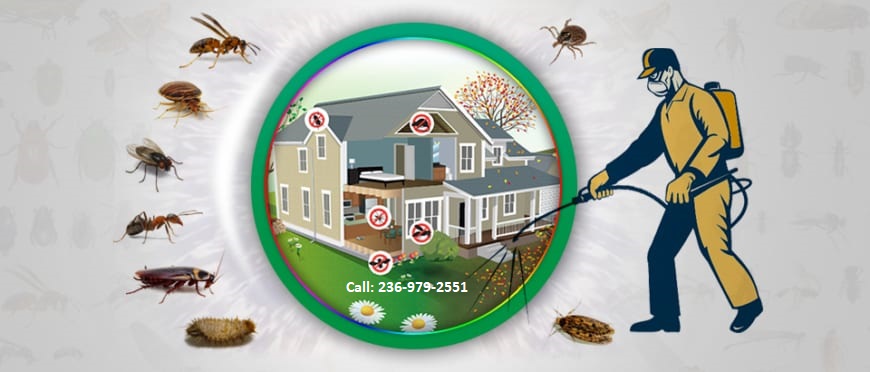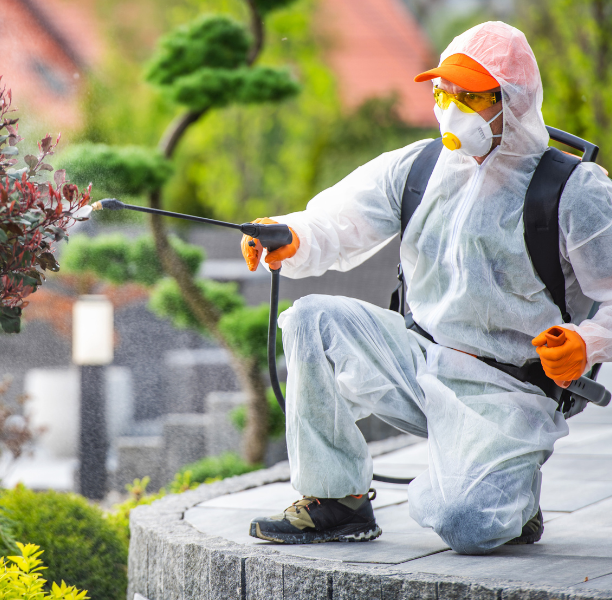Safe and Trustworthy Pest Control for Lasting Defense
Effective parasite management requires a diverse approach that balances eco-friendly honesty with the need for effective insect reductions. The subtleties of these methods may not be right away clear, motivating a better examination of the practices that can lead to sustainable insect control outcomes.
Comprehending Pest Control Techniques
Insect control encompasses a range of approaches focused on handling and removing undesirable pests and rodents that can intimidate both health and home. Comprehending these techniques is essential for reliable pest management.
The primary classifications of pest control approaches include mechanical, biological, and chemical strategies. Mechanical methods include physical barriers and catches to avoid parasite access and capture unwanted species. For example, using displays on windows or utilizing sticky traps can substantially lower insect populaces without presenting dangerous compounds.

Chemical bug control is frequently the most acknowledged technique, utilizing chemicals to remove parasites. These chemicals can be efficient but should be utilized with caution to stay clear of damaging effects on non-target species and the environment.
Advantages of Eco-Friendly Solutions
Just how can eco-friendly options transform insect control techniques? The adoption of environment-friendly parasite control methods offers many advantages, dramatically enhancing the effectiveness and security of insect management (exterminator coquitlam). Firstly, these services make use of all-natural active ingredients, minimizing the dependence on hazardous chemicals that can present dangers to human health and the environment. This change not only protects families and family pets but additionally reduces the possibility for soil and water contamination.

Another advantage is the favorable influence on regional biodiversity. Environmentally friendly remedies are made to target certain insects while maintaining advantageous insects and wildlife, advertising a well balanced ecosystem. This approach aligns with the growing consumer demand for lasting methods, boosting the credibility of bug control suppliers.
Integrated Bug Administration Strategies
The implementation of environmentally friendly services naturally results in the adoption of Integrated Parasite Monitoring (IPM) strategies, which additionally improve insect control efficiency. IPM is an all natural strategy that combines numerous methods to take care of pest populaces while lessening ecological effect. This method highlights making use of biological, social, mechanical, and chemical controls, making certain a well balanced and lasting technique of bug administration.
One fundamental aspect of IPM is the thorough assessment of parasite activity and ecological problems. By keeping an eye on insect populations and recognizing their life cycles, professionals can implement targeted treatments that disrupt the bug's environment or lifecycle, minimizing reliance on chemical pesticides. Additionally, cultural techniques such as crop turning and habitat control can dramatically decrease insect establishment and recreation.
Another vital component is using biological control representatives, such as useful pests or microbes, which can naturally reduce bug populations. When chemical applications are necessary, IPM prioritizes making use of low-risk pesticides and uses them uniquely, reducing exposure to non-target microorganisms and humans.
Incorporating IPM techniques not just enhances insect control performance yet also promotes a much safer environment, straightening with the expanding demand for lasting practices in insect monitoring.
Safe Practices for Homeowners
Understanding the value of risk-free techniques in pest control can encourage house owners to properly take care of bug concerns while securing their health and the atmosphere. Carrying out safe techniques and preventive steps is important in decreasing direct exposure to damaging chemicals.
Property owners must initially assess their setting for problems that attract pests, such as standing mess, water, and food waste. Routinely cleansing and sealing access factors can deter parasites from getting into the i thought about this home. Using natural deterrents, such as essential oils or diatomaceous earth, can provide effective options to chemical pesticides.
When chemical therapies are needed, house owners need to choose items that are particularly identified as risk-free for property usage. It is necessary to follow application standards meticulously to avoid too much exposure. Using targeted therapies in locations where insects are identified, instead than blanket splashing, can dramatically lower chemical usage.
Finally, maintaining open interaction with parasite control experts is vital. House owners must ask about the safety and security of products made use of and request environment-friendly options whenever feasible. By embracing these secure practices, home owners can produce a much healthier living environment while properly handling insect problems.

Tips for Long-Term Security
Establishing a bug monitoring method that emphasizes lasting defense can greatly enhance the efficiency of the safe techniques previously talked about. To achieve this, home owners need to execute routine evaluations of their residential or commercial browse around this site property, concentrating on hidden locations such as attic rooms, cellars, and crawl rooms. Early detection of insect task is important in preventing infestations from taking hold.
These methods decrease attractants that attract bugs right into the home. Securing entrance points, such as fractures around doors and home windows, can efficiently block potential pest access.
Landscape design must also be thought about; maintaining plants cut and keeping a distance between greenery and the home lessens hiding areas for parasites. Making use of natural deterrents, such as necessary oils or diatomaceous earth, can better discourage problems without considering harsh chemicals.
Finally, working together with a specialist pest control service for routine analyses can supply an additional layer of security. These professionals can provide tailored suggestions and advanced therapies, ensuring that your home stays protected against insects in the lengthy term.
Final Thought
Finally, trustworthy and risk-free pest control requires a complex method that highlights environment-friendly techniques and integrated insect monitoring. By implementing all-natural deterrents, carrying out regular evaluations, and keeping appropriate sanitation, residential or commercial property proprietors can dramatically reduce parasite populations while safeguarding valuable pests and the setting. Partnership with specialist insect control solutions enhances the efficiency of these approaches, guaranteeing customized options that give long lasting protection and comfort versus future problems.
Efficient pest management requires a diverse approach that balances environmental stability with the requirement for effective parasite suppression. The fostering of environmentally friendly parasite control approaches provides many benefits, substantially improving the look at this website performance and safety and security of pest monitoring.The implementation of green remedies normally leads to the fostering of Integrated Parasite Monitoring (IPM) approaches, which better boost parasite control efficiency. exterminator coquitlam. By checking pest populations and determining their life cycles, professionals can apply targeted treatments that interrupt the bug's habitat or lifecycle, decreasing dependence on chemical pesticides.In final thought, risk-free and dependable pest control calls for a complex strategy that highlights environmentally friendly techniques and integrated insect management